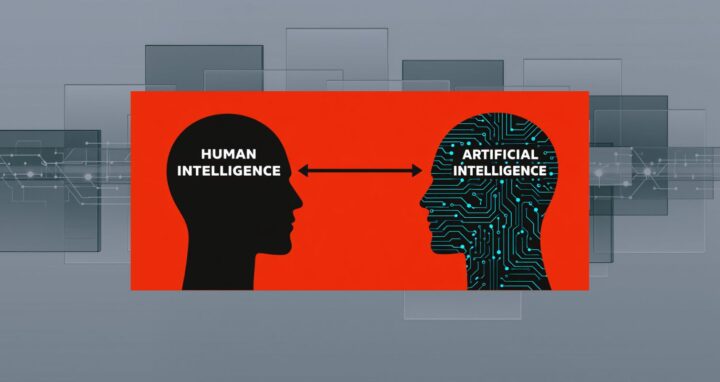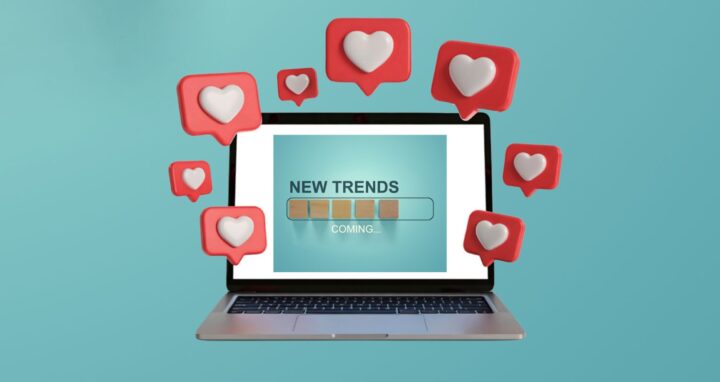In 2025, what is going to happen in Content and Digital Marketing?
From accessibility to the growing use of AI and influencers, public relations and digital marketing will continue to challenge both business and practitioners. Better storytelling, data and trend analysis and the ability to dissect an audience for effective marketing will dominate the landscape and be needed to help break through the noise and rise to the challenges in every market and in every country around the world.
Get insights from our Partners around the world and download the 2025 Future of Communications eBook.
Predictions from Our Partners
Digital Accessibility: A Win-Win for Business and Society
For everyone to have the same opportunities, the world must become more inclusive. This also means that it must become more accessible – not only the analog world, but also the digital world. In the future, digital accessibility will be a critical success factor in PR and marketing. Not only because it is increasingly required by law, but also because early integration of accessibility into PR and marketing strategies pays off: Companies strengthen their brand and credibility. They reach a wider audience, become more attractive to potential candidates and even save money in the long run. Studies also show that accessible websites perform better on Google rankings – a clear competitive advantage.
Companies should therefore ensure that their websites, campaigns and social media channels are accessible to everyone. This means easy navigation, legible font sizes, simple language, sufficient contrast, alt text for images and captions for videos, as well as voice control tools. Accessibility isn’t just a must, it’s a win-win for everyone.
Julia Schwager, Consultant | BCC Business Communications Consulting – Frankfurt on the Main, Germany
AI Agents Will Fundamentally Change Marketing Automation
Marketing Automation, as we know it today, will look a lot different a year from now due to the increased use of AI Agents – which are computer programs that use AI to perform tasks autonomously. Rather than setting up a linear automation step by step, we will give the AI a loose set of rules, ideal trigger situations, and the goals we want it to achieve. From there, the AI will learn, adapt, and use other AI systems to complete the task. As you can imagine, this will open up a magnitude of new use cases for automation and increase productivity across marketing teams.
Wayne Silasi, Digital Marketing Lead | True Digital Communications – Cleveland, OH USA
The Power of Data-driven Storytelling to Build Trust in 2025
In a period of deep economic, political, and social uncertainty, consumers will increasingly seek trust and reassurance from the brands and organizations they interact with. This means that transparent communication with data will become essential for companies to build and maintain credibility. In 2025, data-driven insights will not only validate a brand’s message but will also enhance its emotional resonance, helping clients build stronger, more credible relationships. The companies that can combine empathy and evidence will be the ones to win the trust and loyalty of their audience.
Eleonora Bresesti, Account Director, Digital Lifestyle Expert | BPRESS – Milan, Italy
New Strategies to Connect with Younger Audiences Through Emerging and Reinterpreted Channels
In 2025, public relations strategies will increasingly focus on reaching younger audiences through microinfluencers, short-form videos, and the innovative use of less conventional channels. Traditional media influence is waning among young people, who prefer visual, short-format content on platforms like TikTok and Instagram Reels. However, some media, like television, are experiencing a revival thanks to new consumption behaviors, such as streaming, interactive formats, and co-viewing on social networks. Brands seeking to connect with this audience must adapt to these evolving preferences, ensuring authentic, relevant communication aligned with today’s digital consumption.
Joel Márquez, B2C and Lifestyle Communications Director |LF Channel – Barcelona, Spain
AI’s Rise in Marketing Sparks Consumer Trust Challenges, Driving Demand for PR Expertise and Ethical Content Strategies
As AI becomes more prevalent in marketing, addressing consumer trust and confidence will pose a significant challenge, requiring the expertise of PR specialists. Many consumers already expect AI to negatively impact social channels, fearing that AI-driven content generators could spread false or misleading information. This concern is high, especially regarding the potential for misinformation on social platforms. Some key brands will prioritize authenticity and ethics, appealing to a segment of consumers who value AI-free interactions. To safeguard their reputations, organizations must implement measures to ensure content authenticity and establish responsible AI use guidelines. The lack of frameworks and best practices necessitates transparency, compelling brands to demand clear policies from vendors and partners while integrating safeguards into their technology to build and maintain trust.
Eduarda Lopes, Partner | Planin Comunicação – São Paulo, Brazil
Personalization to Create Deeper Customer Connections
Creating deeper relationships with customers through conversationalist “advocacy” marketing, personalised marketing campaigns and neuromarketing
Since the number of communication channels is growing, mastering Integrated Marketing Communications (IMC) will be imperative to create trusted content that adds value to customers. As a result, it will become increasingly important to create deeper interactions with customers in 2025 to enhance advocacy marketing benefits. This means companies will turn their focus to amplifying messages through people that their target audience want to hear from. Additionally, companies will be required to consider neuromarketing as a part of their digital marketing strategies to inform subconscious realms of consumer decision-making and harness the power of data-driven insights. Through the analysation of this consumer behavior data, messages will be tailored to the unique preferences of target audiences as technological advancements persist.
Giano Terzic, Manager | Phillips Group – Brisbane, Australia
Google Trends are the Great Equalizer for Brands Relying on Earned Media to Drive Sales
Before you pitch media about “the product people can’t stop talking about,” you need to verify that people are, in fact, talking about it. More specifically, you need to verify Google Trends data and provide website KPIs that prove to reporters, affiliate managers, e-commerce managers, that people are actively searching for and interested in your product. Holiday gift guides and pay-for-play opportunities are increasingly weeding out brands and products that won’t drive clicks. Don’t be one of those brands.
Jackie Liu, Senior Vice President | The Pollack Group – Los Angeles, California, USA
Navigating AI in Communication: Balancing Efficiency with Empathy
AI is revolutionising all industries, and communications is no exception. However, the efficiency it brings cannot come at the expense of human empathy and understanding — both crucial elements in communication. With any AI-generated content, particularly in the fast-paced world of social media, quality control is essential to ensure accuracy — that content reflects an organisation’s tone of voice and resonates emotionally.
In the next year, we are focusing on education — for ourselves, our employees and our clients on the risks and opportunities that come with generative AI. Our Internal Communications in Ireland Report 2024 found that while over 60% of IC professionals incorporate AI into their roles, half of organisations lack formal AI policies or guidelines. This needs to be addressed to mitigate reputational risks and ensure the accuracy of shared information.
Chloe Kavanagh, Community Manager | Springboard Communications – Cork, Ireland




